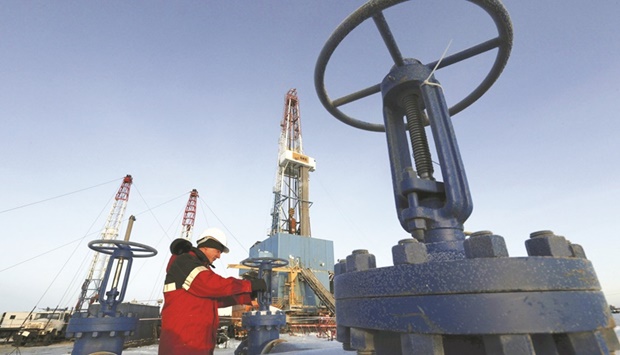Opec sees Russia’s invasion of Ukraine curtailing both world oil demand and supply, indicating little need for the group to divert from its current production policy.
It’s the latest sign that the alliance will remain on the sidelines of the escalating energy crisis. Opec secretary-general Mohamed Barkindo told the European Union on Monday that the oil market was beyond its control.
The Organization of Petroleum Exporting Countries cut forecasts for global oil consumption in 2022 by 410,000 barrels a day, according to its latest monthly report. At the same time, it lowered projections for supplies from outside the group by 330,000 barrels a day, with Russia’s output now seen 530,000 barrels a day below previous estimates.
Many oil refiners are boycotting Russian crude as international sanctions complicate dealings with Moscow, while widespread condemnation over its aggression in Ukraine grows entrenched. Demand has also been rattled, especially as China reimposes strict lockdowns to contain the virus’ latest spread.
The resultantly neutral picture suggests that Opec’s leading member Saudi Arabia, will continue to rebuff international calls to fill the gap left by Russia by opening the taps. The kingdom has been keen to preserve ties with Moscow, with which it jointly leads an alliance of producers known as Opec+.
The inaction is leaving crude prices near $100 a barrel, adding to inflationary pressures buffeting the world economy.
Nonetheless, the analysis from Opec’s Vienna-based research department pointed to a continuation of the status quo.
“Oil-demand growth was revised to the downside” to account for “declines in global GDP on account of the geopolitical developments and the resurgence of the omicron variant” in China, the report said.
The Opec+ coalition has instead stuck with a policy of restoring output halted during the pandemic in modest tranches of roughly 400,000 barrels a day, though most of its 23 members are struggling to make the increases agreed. Many, such as Nigeria and Angola, have seen their capacity eroded by diminished investment and operational disruptions.
Data in Opec’s latest monthly report showed that the group’s troubles persist, with its 13 members adding only 57,000 barrels a day in March – about a fifth of the amount planned.

A worker checks a valve of an oil pipe at the Lukoil company owned Imilorskoye oil field outside the West Siberian city of Kogalym, Russia (file). Many oil refiners are boycotting Russian crude as international sanctions complicate dealings with Moscow, while widespread condemnation over its aggression in Ukraine grows entrenched.
